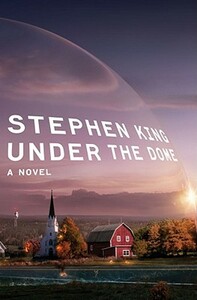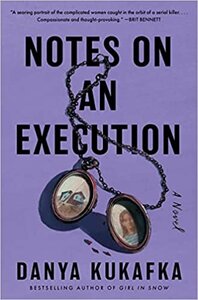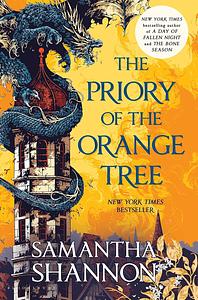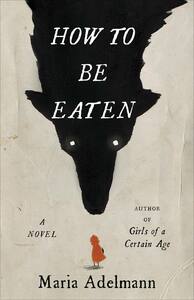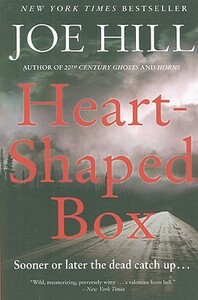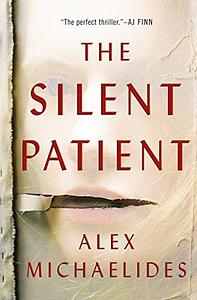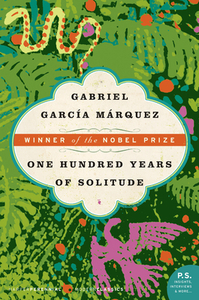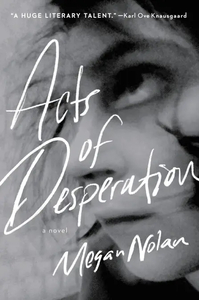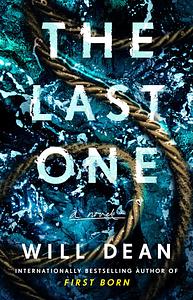Take a photo of a barcode or cover
manikahemmerixh's Reviews (220)
I came very very close to DNFing this in the first 300 or so pages. In the novel as a whole there's pretty much every content warning imaginable, in varying amounts of detail, but specifically there's a graphically described SA (and subsequent off-putting treatment and descriptions of the victim) that almost turned me off the book completely. I pressed on because I couldn't unread what I'd read anyway, and I could only hope that the rest of the book wouldn't be as bad. It is bad and continues to have graphic depictions of violence and death, but I suppose King decided that there should be some actual plot in the book rather than just shock factor, so the last half felt less vividly grotesque to me.
What really got me through this book is: A) King's prose is smooth and easy to read, B) I found the entire concept of Under The Dome incredibly fascinating, and actually wanted answers, and C) I was invested in the characters that I liked and invested in (the downfall mainly) of the ones I didn't. I had to average out my rating to a three because I couldn't give something I came so close to not finishing anything higher than that, and there are things about it that make me want to go lower. However, the concept and character development were near 5 stars, and that (and the fact that it's undeniably well-written) is what saved it from a 2. If only it was written differently with more care towards the way we treat serious matters of human decency (even in fiction), and made a bit more concise.
I'm starting to believe that King's longer works only make me feel like they didn't need to be that length. In this respect, I could copy and paste my critiques of IT and apply them to Under The Dome. Overall I enjoyed this more than IT (way less droning descriptions of something too random or specific to really feel like you care and an idea that's easier to follow). Content wise they're about equal in leaving me feeling gross and even a little offended at times. Had I known that this and IT were so similar (small town Maine, lack of morals and intelligence in abundance, sheep mentality, etc.), I actually probably would have passed in favor of something that would represent the range of his works better.
What really got me through this book is: A) King's prose is smooth and easy to read, B) I found the entire concept of Under The Dome incredibly fascinating, and actually wanted answers, and C) I was invested in the characters that I liked and invested in (the downfall mainly) of the ones I didn't. I had to average out my rating to a three because I couldn't give something I came so close to not finishing anything higher than that, and there are things about it that make me want to go lower. However, the concept and character development were near 5 stars, and that (and the fact that it's undeniably well-written) is what saved it from a 2. If only it was written differently with more care towards the way we treat serious matters of human decency (even in fiction), and made a bit more concise.
I'm starting to believe that King's longer works only make me feel like they didn't need to be that length. In this respect, I could copy and paste my critiques of IT and apply them to Under The Dome. Overall I enjoyed this more than IT (way less droning descriptions of something too random or specific to really feel like you care and an idea that's easier to follow). Content wise they're about equal in leaving me feeling gross and even a little offended at times. Had I known that this and IT were so similar (small town Maine, lack of morals and intelligence in abundance, sheep mentality, etc.), I actually probably would have passed in favor of something that would represent the range of his works better.
I actually adored the way this was written. I found the use of second person POV especially enriching to the novel. There are tons and tons of books out there that put us in the mind of a “bad guy” but this is the first I’ve read that strips them of themselves and turns to the reader and says “you”. You are now on death row. You have now done terrible things. It’s not too graphic though, definitely not light material but written about tastefully.
Notes on an Execution doesn’t just give you a killer and say “this is a bad guy, he’s been tried for his crimes and found beyond rehabilitation, he is obviously a villain and deserves to die, end of story.” But it weaves a more complicated picture. It doesn’t romanticize his actions, or even make him a like able character, but it shows you a human, and other humans whose lives have been irrevocably changed by this person.
Notes on an Execution doesn’t just give you a killer and say “this is a bad guy, he’s been tried for his crimes and found beyond rehabilitation, he is obviously a villain and deserves to die, end of story.” But it weaves a more complicated picture. It doesn’t romanticize his actions, or even make him a like able character, but it shows you a human, and other humans whose lives have been irrevocably changed by this person.
Priory started off slow for me, but by the end I could see why people love it so much. The chapters move around the fantasy world and follow different characters, and there were some that I cared for (and was intrigued by) more than others, but the further into the story I got, that mattered less as stories interconnected. I actually knew little about it going in, only that people said you shouldn't be scared by the length of it. I have to agree, although it is long, I've read shorter books that felt much more cumbersome. The most daunting thing about this story would probably be all of the names and made-up creatures, but there's a glossary, a list of characters, and even a timeline in the back (which frankly, every fantasy should take note) so you can refer to that if you feel lost.
The rest of the novel is actually quite easy to follow. The story moves quick, it doesn't dwell too much on specific battles or trying circumstances. The stakes are high, but if you're an anxious reader, this is a good fit for you because it doesn't keep you hanging on issues for too long. At first, I thought that maybe things were brushed by too quickly, but I came to appreciate it once I realized it was a consistent pattern. Also, the book is already just over 800 pages long, so there has to be some line drawn about what is superfluous vs. needed to give the reader a well-rounded picture. I wouldn't say that all of my questions were answered by the end, but I wasn't left unsatisfied.
The rest of the novel is actually quite easy to follow. The story moves quick, it doesn't dwell too much on specific battles or trying circumstances. The stakes are high, but if you're an anxious reader, this is a good fit for you because it doesn't keep you hanging on issues for too long. At first, I thought that maybe things were brushed by too quickly, but I came to appreciate it once I realized it was a consistent pattern. Also, the book is already just over 800 pages long, so there has to be some line drawn about what is superfluous vs. needed to give the reader a well-rounded picture. I wouldn't say that all of my questions were answered by the end, but I wasn't left unsatisfied.
This is a…unique little book. I was drawn in by the idea of fairytales turned modern with the intention of highlighting the ways they’ve been detrimental to the perception of women, and this does do that to an extent, but the more I reflect on it, the more I realize I didn’t really like it.
I think this has the makings of something really interesting. The skeletons of the way that each girl’s story was modernized are good, but in many ways they feel only half formed. Gretel and Ashlee in particular when I got to the end of their sections I was like, that’s it?? The author makes her point with both stories, but it feels rushed and for me to really feel the impact of any of the stories, I needed more. Then there also parts of it that just didn’t work for me at all. A girl can survive being eaten in Ruby’s story, but a candy house is unthinkable in Gretel’s? Also, the author’s description of Rumple registered as much too childlike, in my mind, for the direction that it was then taken. There wasn’t nearly enough of a fleshed out storyline there for that to have the emotional impact on me I think it was supposed to have. In fact, that entire chapter left me feeling kind of uncomfortable, which isn’t the lasting impression you want from a book.
Then there’s the sub-plot or “twist”. I figured out what was going on there during the second office scene, but was okay with that. The culmination of it all was a let-down though. I probably could’ve done without that all together, which is why I realize that what the author wanted to do with this book, and what I wanted from it, don’t match up.
I think this has the makings of something really interesting. The skeletons of the way that each girl’s story was modernized are good, but in many ways they feel only half formed. Gretel and Ashlee in particular when I got to the end of their sections I was like, that’s it?? The author makes her point with both stories, but it feels rushed and for me to really feel the impact of any of the stories, I needed more. Then there also parts of it that just didn’t work for me at all. A girl can survive being eaten in Ruby’s story, but a candy house is unthinkable in Gretel’s?
Then there’s the sub-plot or “twist”. I figured out what was going on there during the second office scene, but was okay with that. The culmination of it all was a let-down though. I probably could’ve done without that all together, which is why I realize that what the author wanted to do with this book, and what I wanted from it, don’t match up.
Heart-Shaped Box tells the story of Jude, a now middle aged mostly former rockstar who buys a ghost off the internet. Sounds like a fun, spooky ghost story but that’s not what I’d call this.
Yes, there are ghosts but the plot at its core is a story of revenge, not an accidental haunting (which is what I had thought I was getting into from the summary). The main protagonists, Jude and his girlfriend Mary Beth grew on me a lot. They’re flawed but you don’t want to see harm come to them. I also really liked the voice of this story, the characters different accents and dialects come to life from the page.
I just wish I had had a more clear idea of what I was getting into. I think that Jessica Price could easily be introduced into the blurb without giving the intricacies of the story away. She’s introduced within the first 50 pages anyway. I had prepared to be spooked, but really only got a little chill here and there and a lot of heavy themes instead. That’s the ball you roll with adult horror novels though. I think, had I not been looking for a different kind of ghost story, I may have even rated this higher.
Yes, there are ghosts but the plot at its core is a story of revenge, not an accidental haunting (which is what I had thought I was getting into from the summary). The main protagonists, Jude and his girlfriend Mary Beth grew on me a lot. They’re flawed but you don’t want to see harm come to them. I also really liked the voice of this story, the characters different accents and dialects come to life from the page.
I just wish I had had a more clear idea of what I was getting into. I think that Jessica Price could easily be introduced into the blurb without giving the intricacies of the story away. She’s introduced within the first 50 pages anyway. I had prepared to be spooked, but really only got a little chill here and there and a lot of heavy themes instead. That’s the ball you roll with adult horror novels though. I think, had I not been looking for a different kind of ghost story, I may have even rated this higher.
This was a fun, easy read. It's super quick paced and pretty mysterious. Every character seems to have some kind of ulterior motive, and as a reader you're never quite sure what you should believe or who you should be trusting. The end was kind of abrupt, I hadn't even realized I was on the last page, but it wasn't dissatisfying. I think all of the burning questions you're supposed to have while reading are answered, with maybe only some random loose ends (if red herrings that are suggested to be suspicious and then not followed up on count as loose ends).
Even from the beginning I got kind of off vibes from Theo, but then still didn't see the twist coming. I really wasn't sure why the story kept going back around to Kathy's affair, and why it was getting so much attention when things were just getting interesting with Alicia. If I had thought about it a bit more critically maybe I could have gotten there. But it was fun to be surprised.
Reviewing and not rating this one because I have very mixed feelings about it. The majority of the book I was just pushing through and could not wait for it to be over. The long, drawn out chapters about politics and war were painful for me. I also spent much of the book having a hard time caring about the characters. However, it's undoubtedly well-written, complex, and there's a lot to unpack. Because of that, I kept waiting to find myself more immersed in it, and by the time I realized that wasn't going to happen I was too far invested to DNF. I can see why it's considered a classic, I just don't think that it was for me. My favorite part of the whole book was the last two chapters though, so I'm at least glad that finishing it didn't feel like a waste.
Enjoyment of this book is likely to depend a lot on the inner workings of the reader. Within a similar vein of My Year of Rest and Relaxation, but so much better executed in my opinion. Acts of Desperation inserts the reader into the mind of a woman who believes that she wants love above all else, because if someone loves her then life can be simple. The things she hates about herself won't matter because it'll all be washed away. In love, she will learn who she is supposed to be.
She's not really a likeable character. She's a mess. She's self absorbed and hates herself at the same time. She is a proprietor of her own destruction, but she's also just a girl. And that's kind of the point and why you'll probably either (maybe painfully) enjoy or find this book incredibly bland/annoying. I'd consider this the type of art that is meant to be an exaggeration or magnification of the parts of ourselves that we consider "dirty" and hide, but that so many of us can relate to in some way. Our narrator has incredibly big feelings, or sometimes feels nothing at all, she's "inappropriate", and it's all laid out for the reader.
The ending I'm still ruminating on a bit. Snapshots into the "future" show us that our narrator seems to be in an in-between place of understanding the pain she caused to herself and others in her youth, but still struggling to free herself from those parts of herself. In the end she realizes that there could be more to her life than subjecting herself to the whims of men, but the sporadic chapters placed four years later suggest she still doesn't know what that new passion is.
"I went to the bathroom and stood in front of the sink and wept bitterly, immediately, without thought. I knew it was childish, behaving this way, but it was painful to be reminded so casually that everything I cared about was subject to the whims of others."
She's not really a likeable character. She's a mess. She's self absorbed and hates herself at the same time. She is a proprietor of her own destruction, but she's also just a girl. And that's kind of the point and why you'll probably either (maybe painfully) enjoy or find this book incredibly bland/annoying. I'd consider this the type of art that is meant to be an exaggeration or magnification of the parts of ourselves that we consider "dirty" and hide, but that so many of us can relate to in some way. Our narrator has incredibly big feelings, or sometimes feels nothing at all, she's "inappropriate", and it's all laid out for the reader.
"I went to the bathroom and stood in front of the sink and wept bitterly, immediately, without thought. I knew it was childish, behaving this way, but it was painful to be reminded so casually that everything I cared about was subject to the whims of others."
Well, there's no denying that this book is interesting... It picks up quickly and sometimes had me incredibly on edge while other times I was just like be so for real, how is this happening? I was more invested in getting answers than I was in the characters, in fact I found most of them (and especially Caz since we get the story from her POV) quite annoying.
I think what annoyed me the most is how wishy-washy she was. One second, it's I'm miserable here and I just want to go home to my family and then literally in the next sentence she's convinced herself to stay with the most arbitrary reasoning imaginable (you can't leave Frannie alone? Ok, then try harder to convince her to get the heck off that boat) .
I think that this book is trying to make some points about human nature and the unpredictability of what we'll talk ourselves into going through for the right compensation, but wasn't quite well rounded enough to successfully land that kind of sucker-punch. The ending I'm not even sure how to feel about. It has that thriller shock element, but also does that make any logical sense? Absolutely not. I suspended disbelief to follow this story along, the dark web? Creepy, but I can buy it. No governing body of law at sea? Smart enough loophole. But now you're telling me that an entire plane of people have gone missing? Ok...
This would be a fun one for a book club though, there's plenty to talk about, and overall it piqued my interest enough that if he released a sequel I'd still pick it up.
I think what annoyed me the most
I think that this book is trying to make some points about human nature and the unpredictability of what we'll talk ourselves into going through for the right compensation, but wasn't quite well rounded enough to successfully land that kind of sucker-punch. The ending I'm not even sure how to feel about.
This would be a fun one for a book club though, there's plenty to talk about, and overall it piqued my interest enough that if he released a sequel I'd still pick it up.
The Night Swim follows two interconnected stories in the small fictional town of Neapolis. In modern day, Rachel is recording the newest season of her famous true crime podcast, following a trial of town golden boy Scott Blair, who has been accused of rape by a local 16-year-old girl. Upon coming to the town for the trial, Rachel receives a letter introducing the secondary story line, that of Hannah Stills who begs Rachel to help her uncover the true story of what happened to her older sister, Jenny, who supposedly drowned when she was 16 in 1992.
The chapters presented as podcasts episodes were hit or miss for me. Some of them helped to give important information about the trial in a unique way, but they also felt really gimmicky at times. The sign off felt like it would come abruptly, not like a podcast actually coming to end, but like that was all I needed to share in this chapter so *sign off*. If the goal was to make it feel more like a podcast, I think an introduction would have been more beneficial but I don't know that it's needed for a book at all. Very repetitive to read. There were also the occasional random pieces that stood out as weird to me (why was Rachel's voice sexualized as an indication to the success of the podcast? and why did Kelly's father give such a creepily specific recount of what Kelly's friend was wearing the morning they went to pick her up? although in retrospect maybe this is the first time alarm bells are supposed to ring about him as a precursor to the end of the book )
Otherwise I liked the format of the novel. The story doesn't try to take the reader down too many rabbit holes, but slowly unfolds piece by piece, leaving an air of mystery until you get that next reveal. It tackles a rough subject with sexual assault, and seems to do so meaningfully. Parts of this book feel like they could be plucked right from things I've seen on Twitter or in any real life discourse of what it means to be a victim of sexual assault, especially if you come forward to take your abuser to trial; right down to the speculation of "but why would a good, well-rounded boy who could get anyone he wanted need to rape someone?" Why, indeed. If that's a trigger for you, though, it's probably best not to pick this one up.
The chapters presented as podcasts episodes were hit or miss for me. Some of them helped to give important information about the trial in a unique way, but they also felt really gimmicky at times. The sign off felt like it would come abruptly, not like a podcast actually coming to end, but like that was all I needed to share in this chapter so *sign off*. If the goal was to make it feel more like a podcast, I think an introduction would have been more beneficial but I don't know that it's needed for a book at all. Very repetitive to read. There were also the occasional random pieces that stood out as weird to me (why was Rachel's voice sexualized as an indication to the success of the podcast?
Otherwise I liked the format of the novel. The story doesn't try to take the reader down too many rabbit holes, but slowly unfolds piece by piece, leaving an air of mystery until you get that next reveal. It tackles a rough subject with sexual assault, and seems to do so meaningfully. Parts of this book feel like they could be plucked right from things I've seen on Twitter or in any real life discourse of what it means to be a victim of sexual assault, especially if you come forward to take your abuser to trial; right down to the speculation of "but why would a good, well-rounded boy who could get anyone he wanted need to rape someone?" Why, indeed. If that's a trigger for you, though, it's probably best not to pick this one up.
